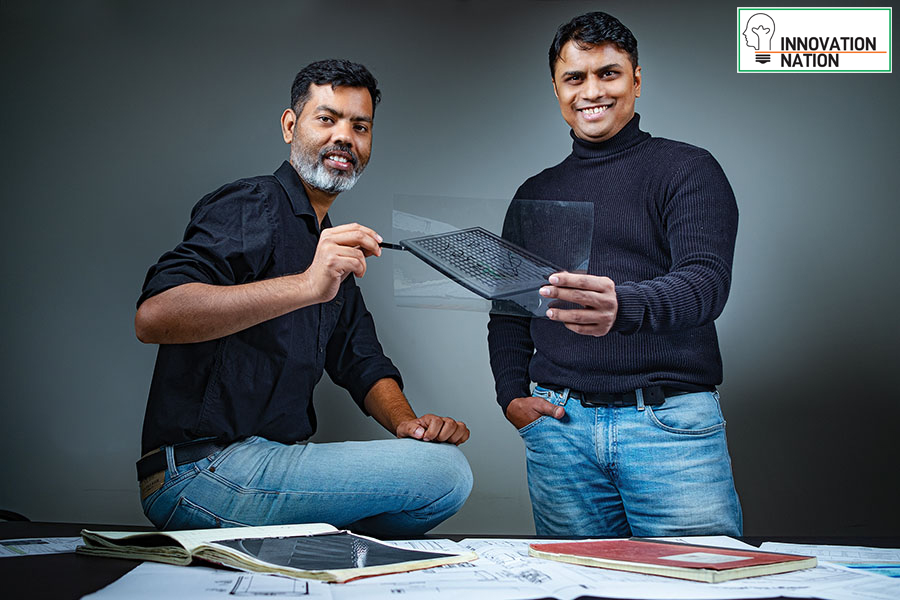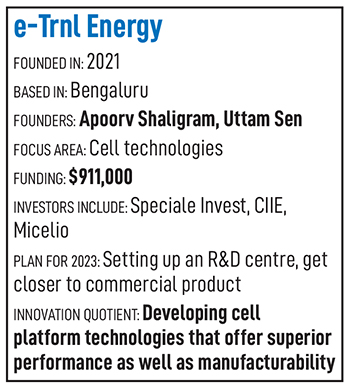
e-Trnl Energy: Cells that keep their cool
At e-Trnl Energy, Apoorv Shaligram and Uttam Sen are building a tech that will achieve superior economics for cell manufacturing and allow them to create fast charging battery packs with lower levels of heating and longer lives
 Apoorv Shaligram (left) and Uttam Sen, co-founders, e-Trnl Energy
Image: Nishant Ratnakar for Forbes India
Apoorv Shaligram (left) and Uttam Sen, co-founders, e-Trnl Energy
Image: Nishant Ratnakar for Forbes India
Apoorv Shaligram and Uttam Sen started e-Trnl Energy in 2021 when they saw an opportunity to tackle some of the fundamental problems with electric vehicle (EV) battery cells today, such as heating, charging time, and the life of the cells and batteries.
As a result, on the one hand, they expect to achieve superior economics for cell manufacturing with more robust and reliable processes, and on the other, produce cells in large numbers that can be put together as battery packs offering 15-minute charging times, significantly lower levels of heating, and which will last longer than the cells and batteries available today.

Also read: QNu Labs: Solving complex problems with quantum computing
India needs ventures like this to succeed because global demand for EV batteries is expected to skyrocket in the coming decade or two. Being dependent on imports for some of the critical raw materials, like lithium, India will have to do everything in its power to make its own cells and batteries as cheaply and reliably as possible.
With $911,000 in funding from investors, including Speciale Invest, CIIE and Micelio Mobility, Shaligram and Sen are currently setting up a research and development centre in Bengaluru. They expect to turn out a close-to-commercial product in about a year.
(This story appears in the 24 February, 2023 issue of Forbes India. To visit our Archives, click here.)
Post Your Comment


















